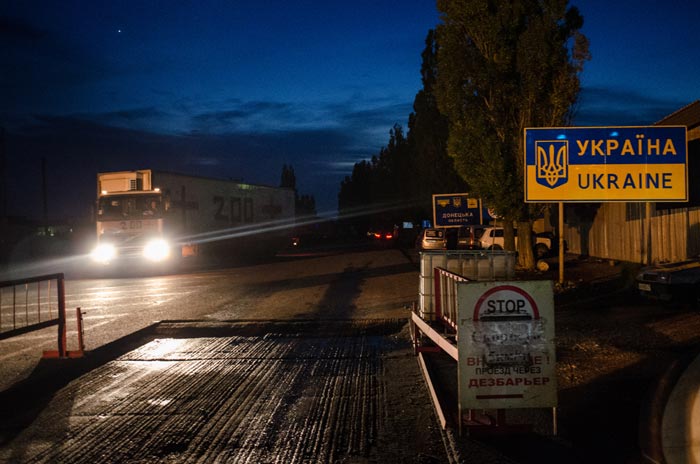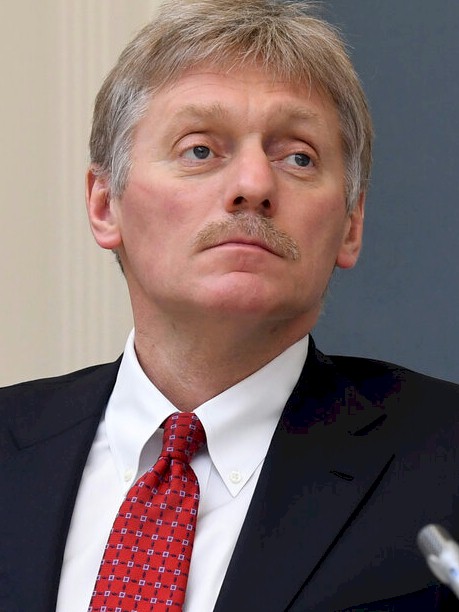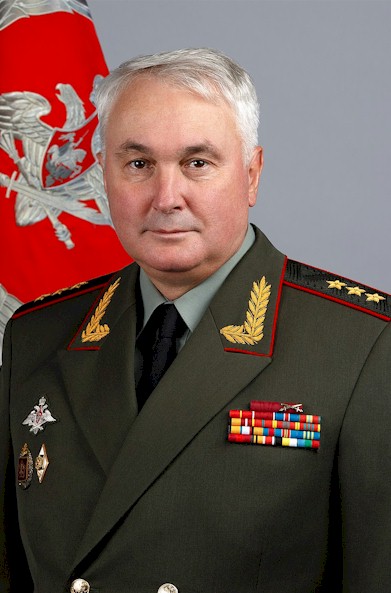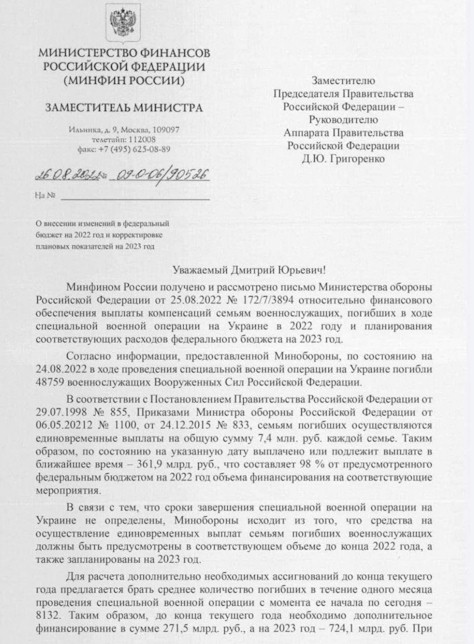Propaganda about the war
A special military operation
Shortly after the Russian army invaded Ukraine on February 24, 2022, Roskomnadzor, the Federal Service for Supervision of Communications, Information Technologies and Mass Media, which essentially organises censorship of the Internet, demanded that a number of independent media outlets remove content describing Russia’s war in Ukraine as a «war», an «attack», or an «invasion». These included the newspaper Novaya Gazeta and the television channel Telekanal Dozhd. After all, the Russian government presented the war as a «special military operation» limited to Ukraine’s eastern Donbas region., where many Russian speakers live. The state-controlled media did not mention the massive bombardments of civilian targets in Kyiv, Kharkiv, Kherson, Mariupol, and other major cities
On March 1, 2022, the Russian Prosecutor General’s Office asked internet watchdog Roskomnadzor to restrict the broadcasts of the radio station Echo of Moscow and Telekanal Dozhd for their coverage of the invasion of Ukraine, claiming that they «deliberately spread false information about the actions of Russian military personnel,” as well as information that “called for extremist activities and violence».
Later that day, Echo of Moscow was taken off the air for the first time since 1991. On March 3, 2022, the board of directors decided to close the station. That same day, Telekanal Dozhd also announced that it was temporarily suspending operations and towards the end of the last broadcast, the crew left the set while the music of Swan Lake by Pyotr Ilyich Tchaikovsky (1840-1893) played in protest. The latter was a reference to the coup d'état of August 1991, when radio and television channels were unable to report the news and instead broadcast footage of the ballet.
2014 - The war in the Donbas
As for the war itself, the Kremlin, and therefore also the Russian press, has always denied that Russian soldiers had been fighting in Ukraine since 2014. However, for some Russians this war was very close, because Russian soldiers were indeed dying every day in this «non-existent» conflict. Their bodies were transported back to Russia in trucks as Груз 200 [Gruz 200] or Load 200. Load 200 is a term that every Russian knows, because it is the code that was also generally used in the past for returning dead bodies from the battlefield. The bodies of the soldiers brought back from the Donbas were secretly buried and the families were not allowed to communicate about them. Journalists who dared to report on Load 200 were threatened and beaten up.

A Load 200 returning from Ukraine
Opposition leader Boris Efimovich Nemtsov (1959-2015) was shot dead in central Moscow on Friday, February 27, 2015, shortly after he announced that he would publish a comprehensive report on Russian involvement in Ukraine, entitled Путин. Война. [Putin. Voyna] or Putin. War. After Nemtsov's death, some of his colleagues finished the report and distributed it online

Boris Efimovich Nemtsov
You can download Boris Mentsov's report using the arrow below
On May 28, 2015, Vladimir Putin took the deception a step further by decreeing that the deaths or injuries of Russian soldiers in «special operations» can be considered military secrets, even in peacetime. This gave him a legal basis to arrest journalists and human rights activists who collect and publish information about the fallen soldiers.
On a personal level, the decree also made it difficult for relatives to gather facts about dead or wounded soldiers. Russia’s refusal to acknowledge that Russian soldiers were involved in the fighting also meant that the wounded were not entitled to disability benefits, and relatives of the fallen could not receive compensation.
Dmitri Sergeevich Peskov (°1967), Putin’s press secretary, said the decree had nothing to do with Ukraine. According to him, it was just «a routine improvement of the legislation on state secrets».

Dmitri Sergeevich Peskov
According to British Defence Secretary Ben Wallace, Russia has come up with a «solution» to the Load 200 problem, using mobile crematoria that can monitor troops during wartime and “«vaporise» dead soldiers. The British Ministry of Defence released a video of the corpse-burning trucks and announced on 23 February 2022 that the Kremlin could use them in the invasion of Ukraine to conceal the number of casualties.
2022 - The war in Ukraine
The Russian news media has repeatedly claimed that the war in Ukraine is not a war, but a limited military operation, in which only military targets are shelled. In the meantime, schools, hospitals and apartment buildings are being bombed. When the Russian army surrounded the city of Mariupol, preventing anyone from leaving, the Kremlin promised to allow «corridors» in the surrounded cities through which civilians could leave. Despite this promise, on March 6, 2022, mortar fire was still fired at fleeing civilians. In Irpin, a mother with two children and a friend of the family were shot in front of the cameras of a team from the New York Times.

March 6, 2022 in Irpin
On March 7, 2022, it looked like corridors would be created after all. There was a catch: the corridors would only allow people to flee in the direction of Russia and Belarus. Residents of Kyiv could go to Domel in Belarus, residents of Sumy and Kharkiv could go to Belgorod in Russia, and residents of Mariupol could go to Rostov-on-Don, also in Russia. In this way, Putin wanted to be able to say in communications intended for the Russian people that Ukrainians were fleeing their «Nazi regime» to seek safety in Russia and Belarus. Unfortunately for him, no one wanted to seek refuge in enemy territory.
On March 4, 2022, the State Duma passed a law introducing penalties for «spreading fake news about the Russian armed forces and the military operation in Ukraine», «making statements that discredit the armed forces», and «calling for sanctions against Russia». Anyone who uses their position to «spread false information or falsified evidence» could face a prison sentence of 5 to 15 years.
What you don’t know won’t hurt you
When it comes to fake news, the Russian government doesn’t need to learn from anyone. A stark example of how Putin deceives his own people is the number of Russian casualties in the war in Ukraine. The Russian Ministry of Defense claimed in September 2022 that 1,352 Russian soldiers had been killed in the «special military operation in Ukraine» up to that point. Andrei Valierevich Kartapolov (°1963), the head of the Defense Committee in the State Duma, added that «releasing figures is no longer necessary due to a successful change of strategy that has resulted in zero casualties».

Andrei Valierevich Kartapolov
However, a leaked letter from the Ministry of Finance revealed that 361.4 billion rubles had already been paid out to relatives as of August 26, 2022. Since 7.3 million rubles are paid out for each casualty, at least 48,759 people had already died in the first six months of the war. At least, because the missing soldiers - to whom no benefits were paid - are not included.

Payments to survivors
The Russian civil movement Открытая Россия [Otkrytaya Rossiya] or Open Russia, founded by Mikhail Borisovich Khodorkovsky (°1963), published a detailed list of Russian soldiers who died in Ukraine. On February 27, 2022, the Ukrainian government was inspired to launch the Russian-language website РФ 200 (ищи своих) [RF 200 (ishchi svoich)] or RF 200 (find yours), to give the Russian population the opportunity to find out about fallen or wounded compatriots. However, since April 2023, this information is no longer accessible.
